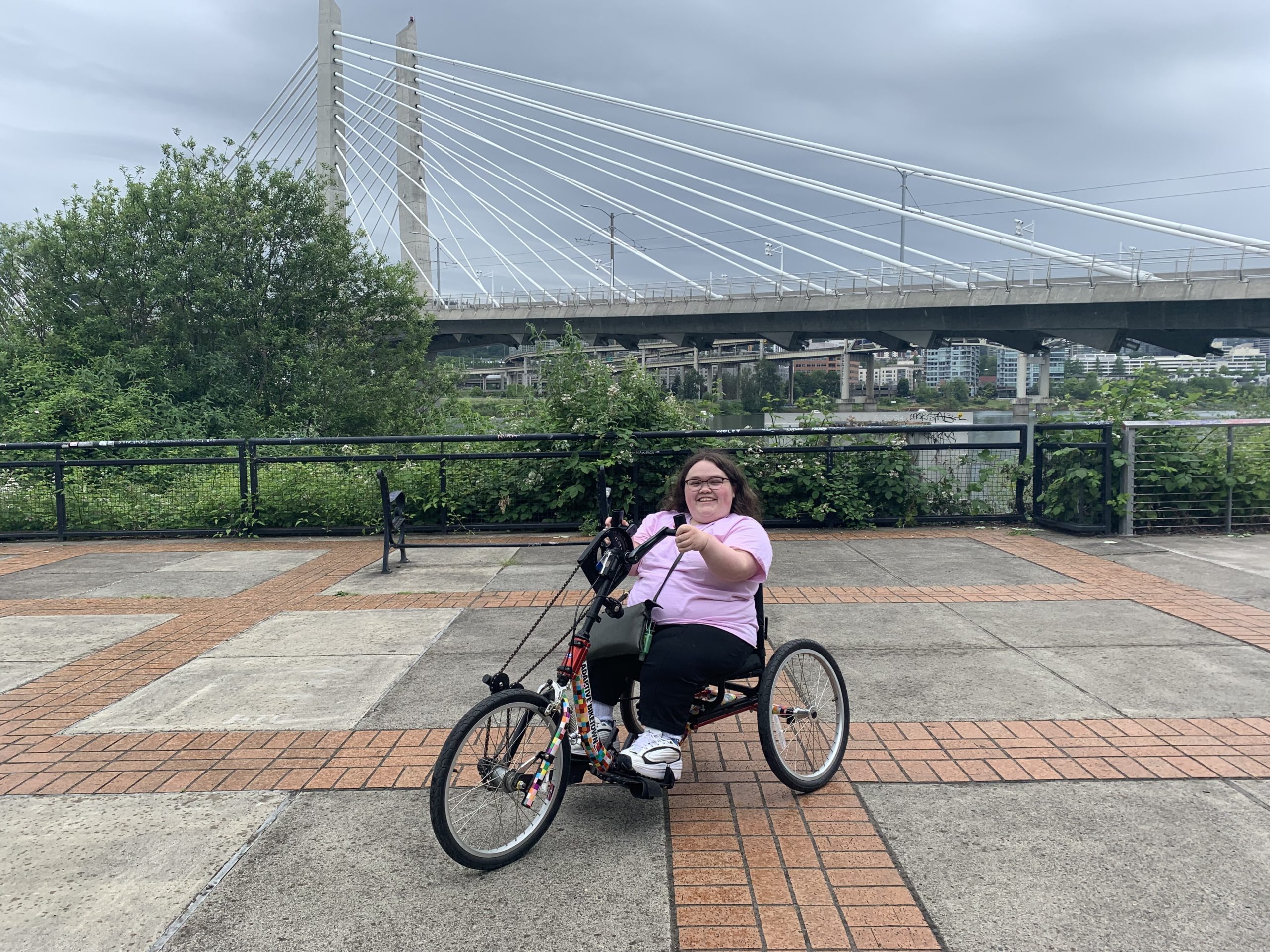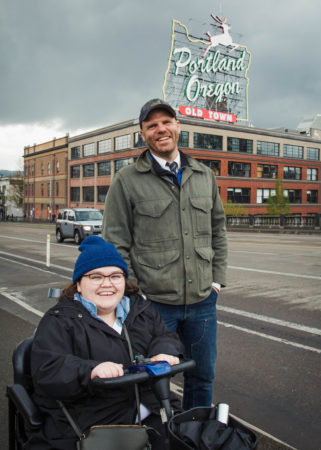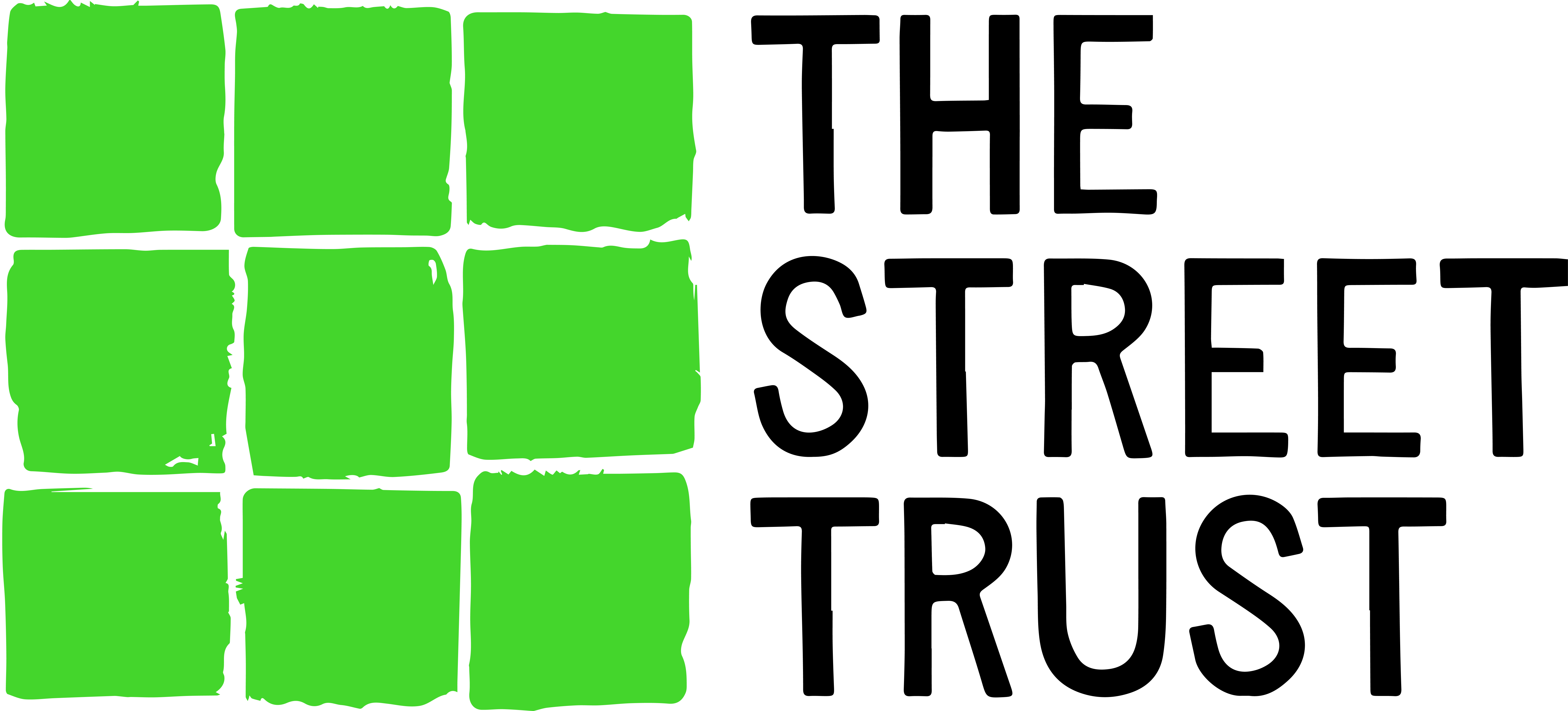
Happy Disability Pride Month!
Although it’s not recognized federally, the disabled community recognizes July as Disability Pride Month in honor of July 26th being the anniversary of the signing of the Americans with Disabilities Act of 1990.
At The Street Trust, we champion safe, accessible, equitable, and low-carbon streets. We also acknowledge that transportation justice and disability justice go hand in hand. Whether something is accessible or not means different things depending on the context, but it should always include access for disabled people because we overlap with all other groups.

As someone with a mobility disability, accessibility to me means having the freedom to move through life with as much ease as someone who is not disabled. This includes anything from accessing housing, school, and work (in-person or online), to navigating our communities. Accessibility also emphasizes how mobility devices are freedom and independence for many disabled people, making it easier for us to move our bodies, as opposed to being ‘confined’ to them as is often how they’re described.
Something feels accessible to me when I don’t have to think much about it or go through extra steps to get my needs met. It removes the added labor of figuring out how to navigate life in a way that works for me. For that reason, it’s a lot easier to notice when things are not accessible such as buildings with one step to get inside or crosswalks without accessible (or any) curb cuts.
Speaking of curb cuts, everyone benefits from accessibility! The ‘curb cut effect’ demonstrates how increasing accessibility for disabled people accessing sidewalks by adding curb cuts also improves conditions for people pushing strollers, bicycles, skates, carts, etc.
As a disabled person living in a rural area without public transit, I am forced to drive. Driving is already expensive, and the cost only increases when you factor in accessible vehicle upgrades and added insurance for those features. When I was reliant on Supplemental Security Income (SSI), transportation accounted for over half of my below-poverty-level income. Increasing access to public transit, bike lanes, and sidewalks state wide would hugely benefit people who can’t drive due to disabilities, and it would also benefit the estimated 1 in 3 Oregonians who can’t or don’t drive as well as those who would choose not to if given feasible alternatives.
– Cassie Wilson, Community Engagement Assistant @ The Street Trust
Celebrate Disability Pride Month with The Street Trust at our Pedalpalooza ride at 4:00pm on July 28th which starts and ends at Adaptive Biketown.
